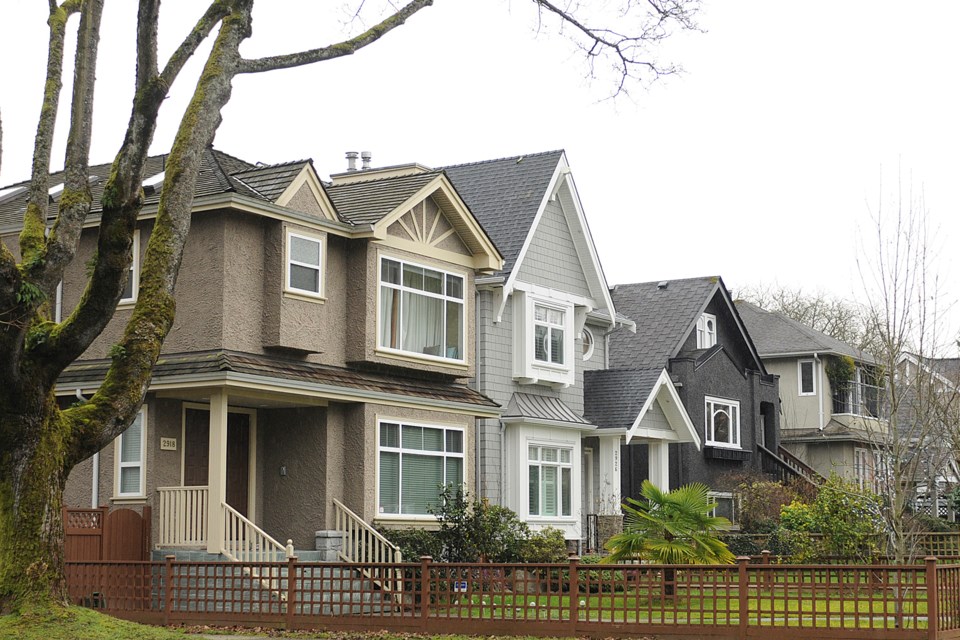The Bank of Canada is caught in a balancing act of triggering a recession and keeping the economy afloat, according to one B.C. economist.
Last week, Bank of Canada governor Tiff Macklem reiterated that the bank may have to move its key interest rate upwards of 3% to bring inflation back on target. He said the bank may need to "move more quickly, may need to take a larger step" to avoid inflation becoming entrenched."
“They're saying, if it takes us to trigger a recession, by increasing interest rates, we are willing to pay that price," says Giovanni Gallipoli of the University of B.C. "It's going to be painful."
As the cost of goods and services soars, interest rate hikes are a means to cool demand and put less pressure on prices, explained Gallipoli.
Inflation becomes dangerous when people’s expectations of it become “entrenched,” triggering a “vicious cycle” of price increases with wages unable to keep up, he said.
“If you don't do it now [increase interest rates], you run the risk of things overheating, and then expectation becomes embedded and it becomes a lot harder for monetary authorities to keep the prices in check,” said Gallipoli.
“The reasonable thing is to take the heat now and avoid a bigger heat later.”
Inflation has been caused by printing more money during the COVID-19 pandemic. It has surged ahead thanks to supply chain disruptions, trade restrictions, particularly with China, and Russia’s invasion of Ukraine interrupting production and supply of basic staples such as oil and wheat.
The Bank of Canada sets what’s called an overnight interest rate, now at 1.5%, up from 0.25% in December 2021. Prime rates are the higher rates banks charge on loans. Right now, the prime rate is 3.7%.
Low rates have overstimulated the economy with more borrowed money in the system, causing asset prices to inflate.
“If your mortgage is a fixed rate at 2%, like many people have, with an inflation rate of 7%, effectively the bank is paying these people 5% in real terms, to borrow money. That's very stimulative,” explained Gallipoli.
How high will interest rates go?
Gallipoli says he has no solid answer as monetary policy cannot immediately impact underlying conditions of inflation, such as war, disrupted supply chains and the price of energy.
But he said he expects Bank of Canada’s rates to be at least at 3% by December.
Ontario-based mortgage broker Ron Butler says this will push five-year mortgage terms at or past 5.25% as banks bake in the overnight rate hikes as well as added risk as home prices decline since people will be able to borrow less for their purchase.
“I don't see [the Bank of Canada overnight rate] being a nickel less than 3%,” said Butler of the tightening cycle.
Butler says where immediate pain will be felt is with home equity lines of credit, which have sat at a record low of 2.95% from mid-2020 to early 2022. Now, rates will likely exceed 5% by year end and payments will immediately reflect this.
His advice to prospective buyers is to “enjoy the summer” and “have a look” come Labour Day. Even then, waiting until New Year's may be advisable, he said.
He says prime rates could go even higher in 2023 although anything over 7% would spark an “unmanageable problem.”
The pace of hikes will also be managed by the Bank of Canada, he said.
The problems will commence if or once more people lose their jobs, according to Butler.
“The history of this country is that when Canadians have their employment, that they will drink rainwater and eat grass in order to make mortgage payments. I mean, it's a very important thing to Canadians. But you are more concerned about unemployment, because with unemployment, there's no comeback from that if you lose your job — how do you make your mortgage payment?”
How will home prices be affected?
Housing economics professor Thomas Davidoff at the University of B.C. says home prices are going to fall in this environment, but affordability likely won’t improve.
For example, on a home purchased at $500,000 with a 5% down payment at a 2.5% interest rate, the payment would be $2,212. If the new rate is 5%, the monthly payment goes up to $2,873. Such a home would need to decline in value 20% (to $400,000) in order for a new homebuyer to pay roughly the same with the higher rate ($2,268).
“So, the home falls a little bit, but affordability is still probably worse. And you'll probably have more people looking to rent, so rents will likely escalate,” he said.
Davidoff said landlords with existing tenants who have rent increase protections under B.C. law are going to feel the pinch as repair costs and mortgage payments increase.
“So, shed a tear for the landlord,” he said.
As like most times, there are varying factors at play for home prices, said Davidoff. While interest rates may bring prices down, counteracting this will be rising construction costs and homebuilders walking away from projects, thus creating a dearth in supply, all the while immigration continues to ramp up, he said.
With a file from Canadian Press



